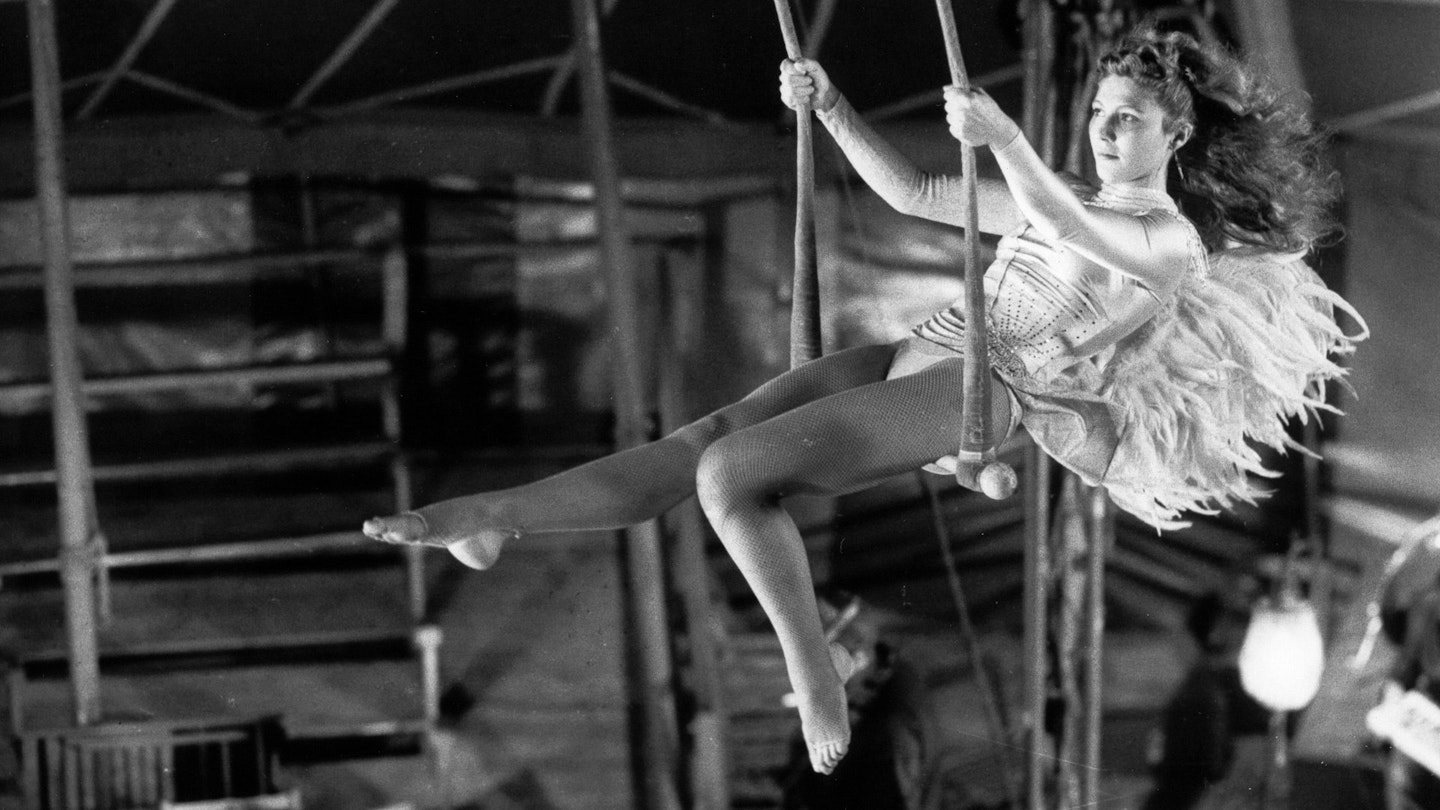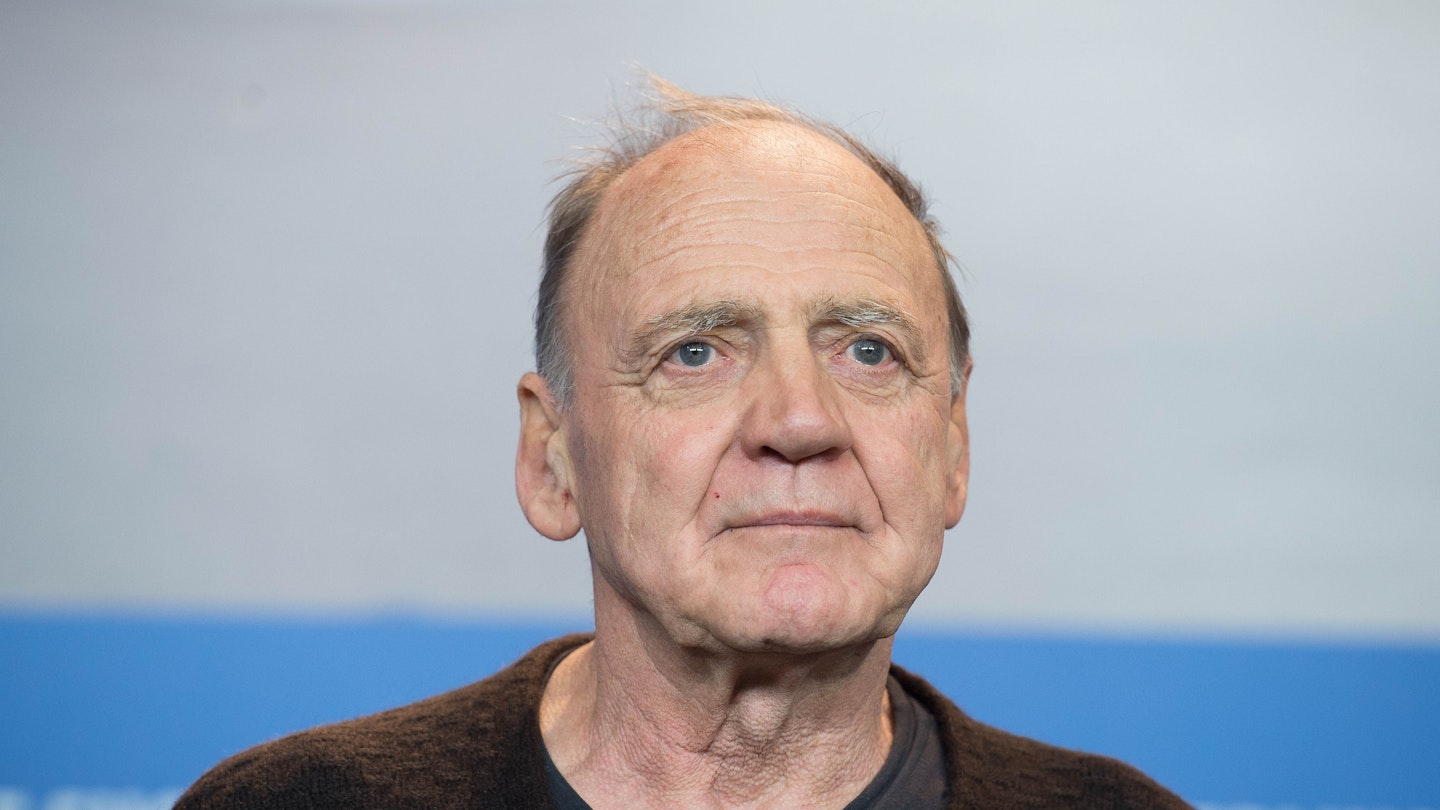An elusive, poetic vision of Berlin before the Wall fell, an extraordinary, haunting piece that evades the hard edges of plot for a moody shimmer of ideas tracing lost souls about a cold city. Imagine the evocative, ghostly Americana of Paris, Texas transformed into an equally vivid Euro-vibe made up of a ruined tableau of Nazi trappings and silent streets shot in a celestial black and white. Both films mark a triumph for Wim Wenders, works that hover closer to poems or pieces of music than strict movies.
Here we have a world of invisible angels floating amongst us, and we follow Bruno Ganz’s Damiel who seeks to taste human existence. There are those in this deadened city that are spiritual enough to detect traces of Damiel’s passing, among them Peter Falk as an American actor who significantly is in the city to make a film about the Germans in wartime. But more important to Damiel is Marian, a circus acrobat who wears wings for her act to swing angel-like above awe-struck crowds, she in her pained solace has stirred this angel to consider shedding his spiritual form for the fulfilment of physical desires. The question of whether he will go through with it is as much of a plot as we get.
This is a film about dualities, separations, and disconnections set in a divided city, East and West held apart by a stone wall and vast gulfs of philosophy. The spiritual is cut off from the sensual, the Nazi past from this vague, uncertain present, but most of all we are separated from each other. Loneliness pervades every frame, but in the measured, inspired dialogue, Ganz’s dreamy performance and the lovely, captivating images Wenders offers much to be hopeful about.
While Wenders served up a pseudo-sequel in 1993’s Faraway So Close which only sporadically recaptured the magic, Hollywood served up a mawkish retread, City Of Angels with Nicolas Cage as the angel falling for Meg Ryan’s heart surgeon.

